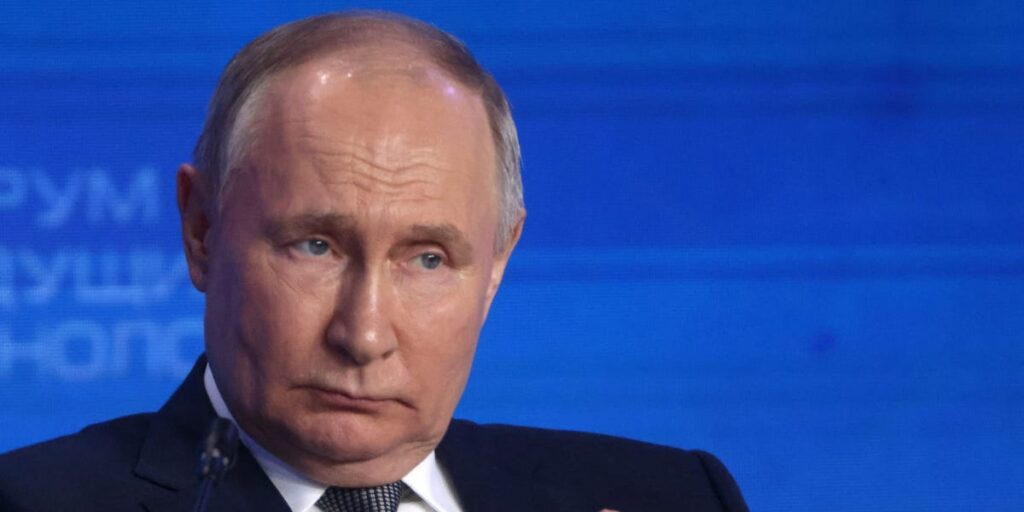Some of Russia’s business elites appear to be getting impatient with the country’s wartime economy.
Several influential individuals have come out to publicly challenge the Russian central bank’s signal that it’s likely to hike interest rates on Friday.
Russia’s key interest rate already stands at 16%. Analysts polled by Reuters expected the central bank to hike it to 18% on Friday afternoon — the highest since April 2022, when it hit 20% amid economic turmoil following the invasion of Ukraine.
Igor Sechin, the CEO of Russian oil giant Rosneft, pointed to China’s recent interest rate cuts, saying Russia should take cues from its neighbor, TASS, a state news agency, reported on Tuesday.
“We hope for similar steps for Russian prime borrowers from the Bank of Russia,” said Sechin, according to a Reuters translation.
It wasn’t the first time Sechin complained about high rates. Just last month, he griped that they are holding back borrowing and stifling business activities.
Now, he’s also backed by Anatoly Aksakov, the head of Russia’s lower house of parliament’s banking committee.
“We need relatively cheap credit to come to the economy. We need structural change,” said Aksakov, per Reuters. He added that price rises have slowed slightly and that annual inflation would decline in the second half of this year.
Russia’s Center for Macroeconomic Analysis and Short-Term Forecasting, an influential think tank, even said the central bank is “forcing stagnation” onto the economy with high rates, per Reuters.
“Negative and systemic risks from such an action are likely to outweigh the positive effects,” said Dmitry Belousov, the head of the think tank, referring to a potential rate hike.
Infighting with central bank governor
Despite sweeping sanctions over its invasion of Ukraine in late February 2022, Russia’s economy has avoided going bust and even appears resilient, as it’s now being driven by wartime activities and services. Moscow has also pumped in subsidies for mortgages and businesses.
Russia posted 3.6% GDP growth last year, while unemployment rate hit a record low 2.6% in April as men continued heading to the front and amid a brain drain. This in turn drove up wages that contributed to price gains.
Russia’s annual inflation rate remains high, at around 9.2%, amid a red-hot wartime economy that the country’s central bank has been trying to cool.
The gripes over interest rates from Russia’s elites show the infighting within the country’s top echelons with Russian central bank governor Elvira Nabiullina taking several hits over the past year.
In August, one of Putin’s aides slammed her for the weak ruble.
But Nabiullina has been at the helm of Russia’s central bank for over a decade and is said to be trusted by President Vladimir Putin. She has so far managed to steady the economy and survive his high-level reshuffles.
Given that Russia’s inflation rate is expected to remain high this and next year, monetary policy is likely to stay tight — indicating high rates — “until substantial disinflation takes hold,” according to Allianz, a German financial services company.
Russia’s central bank did not respond to a response for comment from Business Insider sent outside regular business hours. The central bank is also in its quiet period before its rate decision.
Read the full article here


